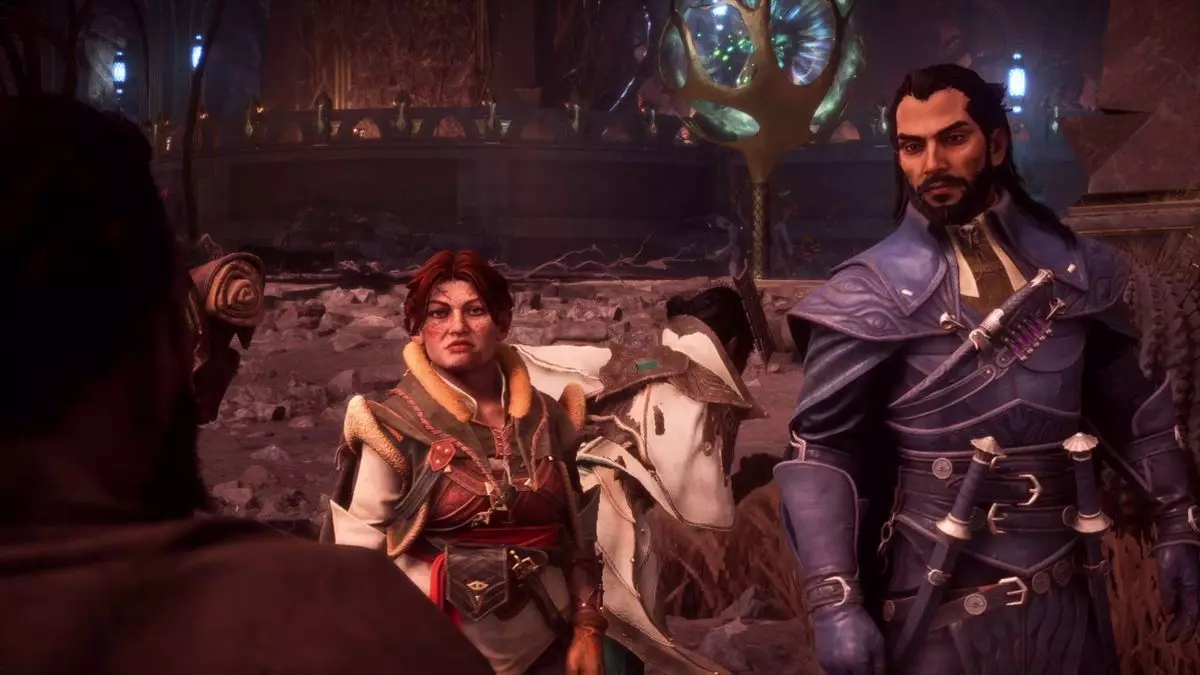In the realm of video games, few franchises provoke deep moral dilemmas like the Dragon Age series. The recent installment, Dragon Age: Veilguard, presents players with a pivotal yet harrowing decision that can shape the trajectory of the story and the fate of its characters: the choice between saving two threatened cities, Minrathous and Treviso. This article delves into the complexities of this choice, analyzes the consequences, and explores the broader implications tied to player agency in Dragon Age: Veilguard.
As players immerse themselves into the storyline, they are swiftly presented with a critical decision — to aid either Minrathous or Treviso in the face of the impending threat posed by Blight Dragons controlled by Ghilan’nain. This unexpected choice emphasizes the urgency and gravity of the situation, forcing players to act decisively without full knowledge of the potential repercussions. The lack of prior buildup or preparation amplifies the emotional weight of the decision, creating a tension that captivates players, challenging them to weigh loyalty against the stark realities of sacrifice.
This scenario introduces a significant moral quandary: choosing to save one city invariably leads to the suffering of the other. Players must grapple with the outcomes tied to their chosen companion and faction, an aspect that resonates deeply within the lore of Dragon Age. Will you side with Neve and the Shadow Dragons, ensuring Minrathous’s defense at the potential devastation of Treviso? Or will you extend your support to Lucanis and the Antivan Crows, jeopardizing Minrathous in the process?
Consequences of Choice: The Ripple Effect
The aftermath of either decision is fraught with significant consequences. If a player chooses to defend Minrathous, they face a scenario where the Venatori threaten to seize control, yet their successful defense means that the city remains safeguarded. However, this comes at the cost of Treviso, where blight overcomes the canals, leading to failed side quests and the loss of a merchant essential for the player’s progression. Conversely, opting to assist Treviso results in civilian casualties and a surge of blight in Minrathous, yet it potentially preserves the integrity of the canals and gives players new side quests reflecting the aftermath.
What makes this choice particularly compelling is how it echoes throughout gameplay. The new quests emerging in the city left undefended serve to highlight the consequences of the player’s earlier decision, enriching the world-building of Dragon Age: Veilguard. Players become acutely aware that their choices reverberate in the game’s ecosystem, fostering a sense of ownership and accountability for their actions.
One of the essential elements of role-playing games is the relationships players build with their companions, and Dragon Age: Veilguard is no exception. During the decision-making process, players must consider the implications on their potential romance with characters such as Lucanis and Neve. Choosing to assist Minrathous could lead to losing the possibility of a romantic relationship with Lucanis, thus altering players’ future interactions and the dynamics of their team. This reinforces the notion that moral decisions are not just about the immediate outcomes but also how they impact character relationships and player experience moving forward.
Moreover, the concept of the “Hardened effect” imposed on companions post-decision signifies a deeper transformation. This narrative device serves as a reminder that characters are infused with the weight of their experiences, resulting in an evolution that shapes their personalities and relationships with the protagonist. Such nuances add depth to the decision-making process, where players are tasked not only with strategizing for survival but also with navigating the nuanced emotional landscapes of their companions.
Replayability and Player Agency
In a genre where players are often given the luxury of choice, Dragon Age: Veilguard stands out by presenting challenging decisions that demand replayability. If players are dissatisfied with the outcomes, the option to reload saves ensures that the complexities of their adventure can be explored from varying perspectives. This mechanic invites players to engage deeply with the game’s world, enhancing their understanding of the implications of each choice and unveiling new narratives that could emerge from alternate decisions.
Ultimately, the decision to defend either Minrathous or Treviso in Dragon Age: Veilguard is emblematic of the crucial theme in modern storytelling — the weight of choice and the intricate web of consequences that it weaves. As players navigate through their adventures, they are reminded that every action holds the potential to shape not only their journey but the fates of the characters they grow to care for within the Dragon Age universe. With its rich narrative and complex moral landscape, Dragon Age: Veilguard continues to pull players into its immersive world, where the lines between heroism and sacrifice blur in the face of impossible choices.


Leave a Reply